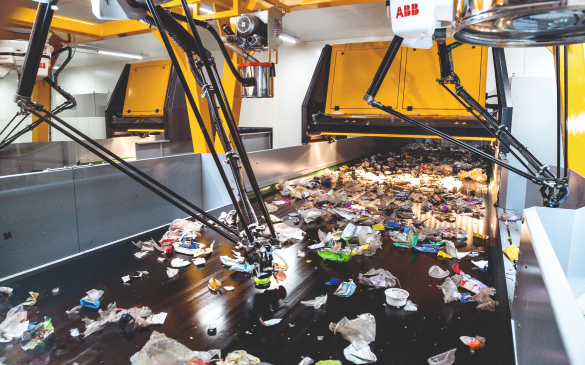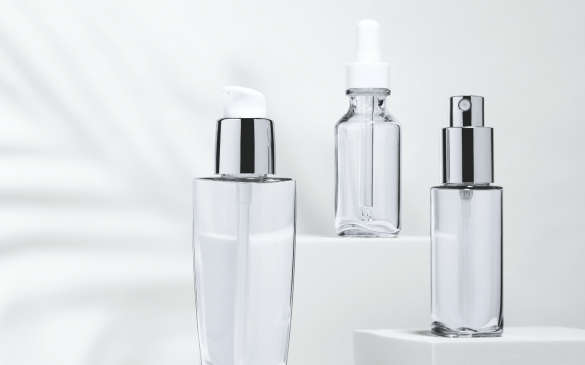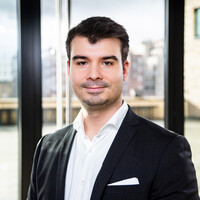Chemical Recycling: The best for the rest
The perfect complement to mechanical recycling: our sorting plant in Walldürn will enable the chemical recycling of mixed plastics. This will rescue even more raw materials from the incinerator and allow them to be processed into high-quality products.

As things stand, most mixed plastics that cannot be mechanically recycled end up being incinerated. To let these raw materials also be managed in the loop, companies from the recycling, petrochemicals and plastics industries are working together to expand chemical recycling. This has lots of potential: “Chemical recycling can handle material streams unsuited to mechanical recycling and therefore conserve resources while avoiding waste incineration,” says Dr Markus Hiebel, Head of Department Sustainability and Participation at the Fraunhofer Institute for Environmental, Safety, and Energy Technology UMSICHT.
Focus on mixed plastics
Interzero processes more than 800,000 tonnes of lightweight packaging from yellow bag and bin collections every year. Roughly half of this is recycled mechanically and used for the production of regranulates for the plastics industry, for example. Another quarter is sorting residues, including items that shouldn’t be in the yellow bin in the first place. The last 25 percent consists of mixed plastics that cannot be clearly assigned to a sorting fraction and which previously ended up being sent for incineration. Interzero has developed a new sorting method that targets this material mix. “While our sorting plants to date have focused on monomaterials like PE and PP , these new technical systems are generating plastics streams that are tailored to the chemical recycling methods used by our partners,” explains Dr Richard von Goetze, Head of Chemical Recycling at Interzero.
Walldürn plant set to go live in 2026
In November 2023, construction work began in Walldürn (Baden-Württemberg) to build Europe’s largest sorting plant for the production of raw materials for chemical recycling — a joint venture between Interzero and OMV. This partnership will create around 120 new jobs as well as a bright future for the circular economy. Once the plant is operational in 2026, it will process up to 260,000 tonnes of mixed waste plastics every year. “In this way, we believe we will be able to generate large quantities of material for chemical recycling,” von Goetze explains. “In turn, this will enable our partner companies to produce new plastics — and at food-grade quality.”
New plastics from non-recyclable mixed plastic waste
The OMV case: The company will process the mixed plastics from the Walldürn based sorting plant in its ReOil® plant, where mixed plastics are cracked into their basic components via pyrolysis. The pilot facility can process 100 kilograms of waste plastic into 100 litres of pyrolysis oil per hour. A new plant with a capacity of 16,000 tons per year is currently being constructed at the OMV site in Schwechat, Lower Austria. The next step is the development of a ReOil® plant on an industrial scale with a planned capacity of up to 200,000 tons per year. The recovered raw materials will be reused for the production of plastics for various application fields. These plastics will have an ISCC PLUS certification (International Sustainability & Carbon Certification), ensuring traceability throughout the entire supply chain and guaranteeing that the value chain meets all environmental and social standards.

Sustainable cooperation with Eastman
A different process, the same goal: Together with the US company Eastman, Interzero is opening up a new recycling route for PET packaging that is difficult to recycle. The company’s future molecular recycling plant in France will ultimately recycle more than 200,000 tonnes of PET waste per year. “Interzero and Eastman are committed to reducing plastic waste and building loops,” says Reinier de Graaf, Director Feedstock Strategy at Eastman. “We are pleased to be able to establish a close collaboration with Interzero to obtain some of the raw materials required for our plant.” Eastman’s polyester renewal technology breaks down mixed PET waste into its monomers and then reassemble them into a high-quality material. With the inherent efficiencies of an integrated plant and the renewable energy sources available in France, the facility is expected to work with significantly lower greenhouse gas emissions than with conventional, oil-based processes. It’s a concept that’s also been well received by brand manufacturers, as Eastman is already producing at scale in the US and commercialising worldwide its recycled materials: Among other things, Eastman’s recycled plastics are processed into reusable drinking bottles, household appliances, consumer electronics or cosmetics packaging. The French project has gathered a great support from global brands. LVMH Beauty, The Estée Lauder Companies, Clarins, Procter & Gamble, L’Oréal and Danone leading the way by signing letter of intent for multi-year supply agreements.
Next steps
Working to close loops together and save valuable raw materials: while businesses make new technologies and capacities available, the further expansion of chemical recycling will also be dependent on political frameworks — such as a recognition of the process in the German Packaging Act. Interzero’s Chairman Dr Axel Schweitzer at the ground-breaking ceremony for the new plant in Walldürn: “I am convinced that with the aid of chemical recycling, the recycling rate in Germany can and will increase significantly in the future. With this, we will also take another major step towards our vision of a world without waste.”

Head of Chemical Recycling


